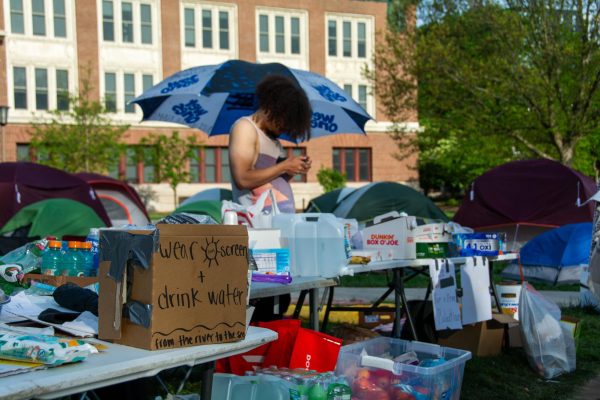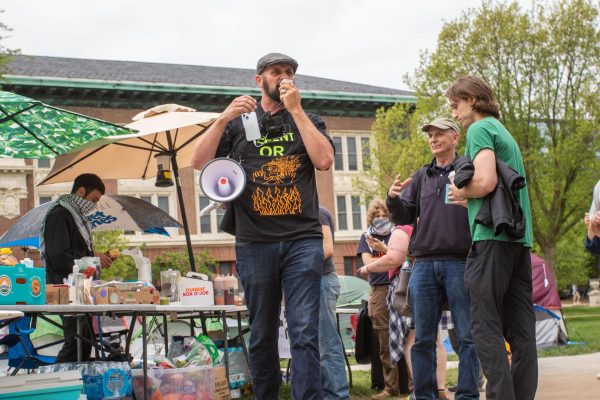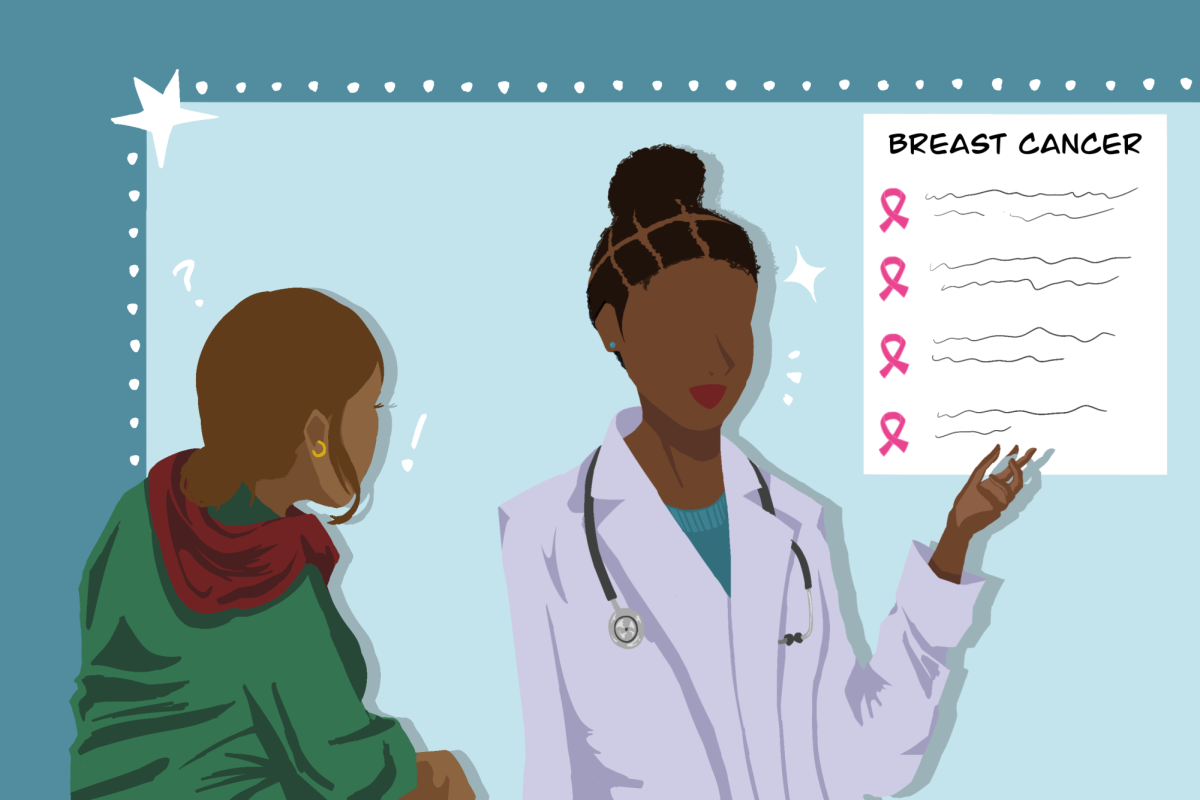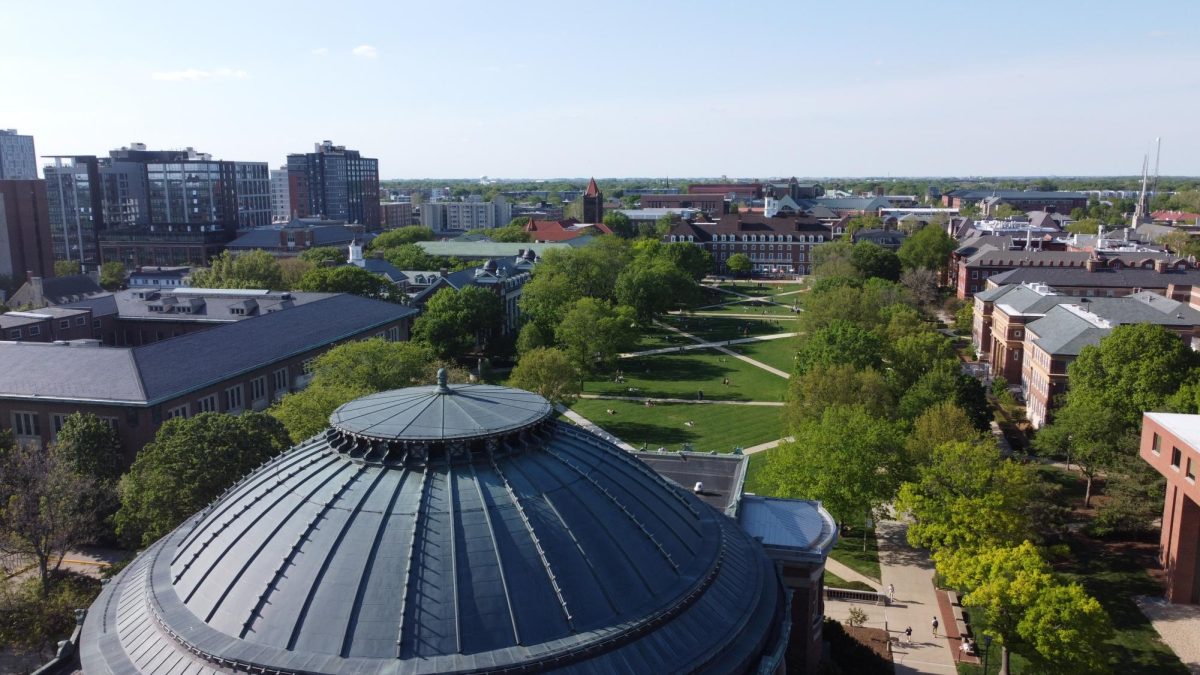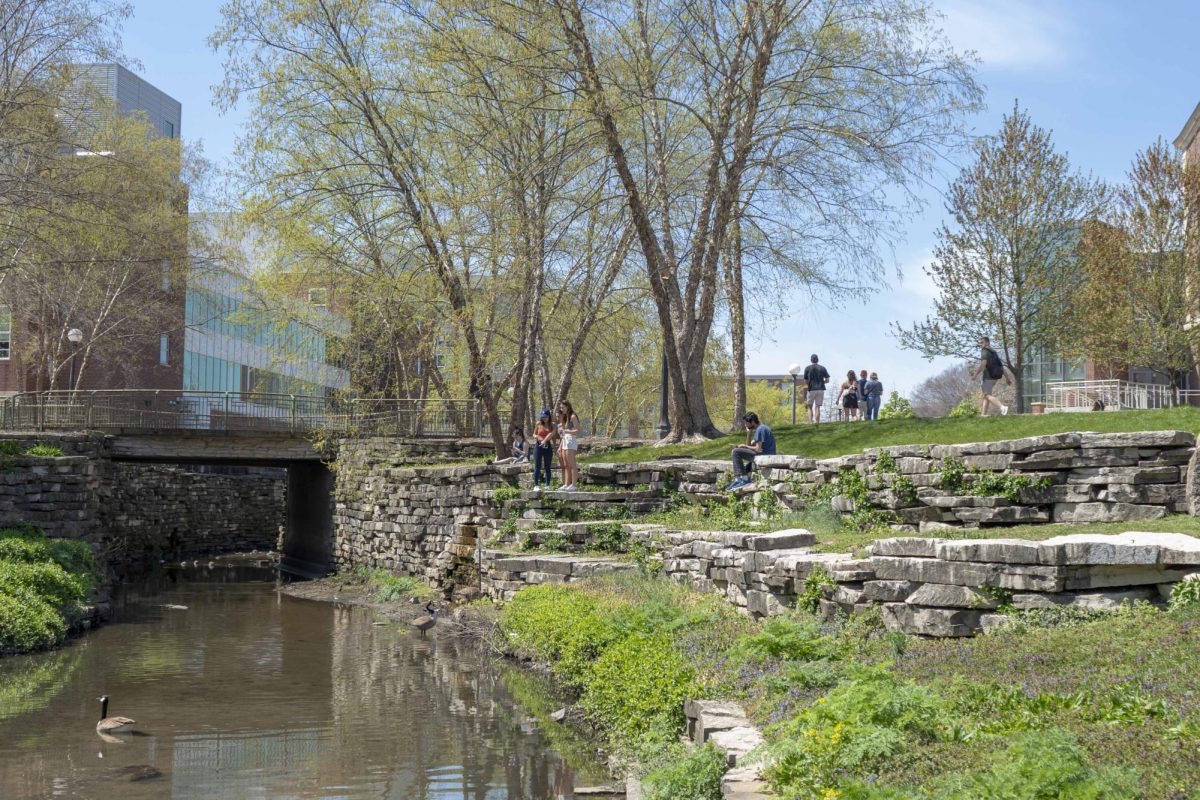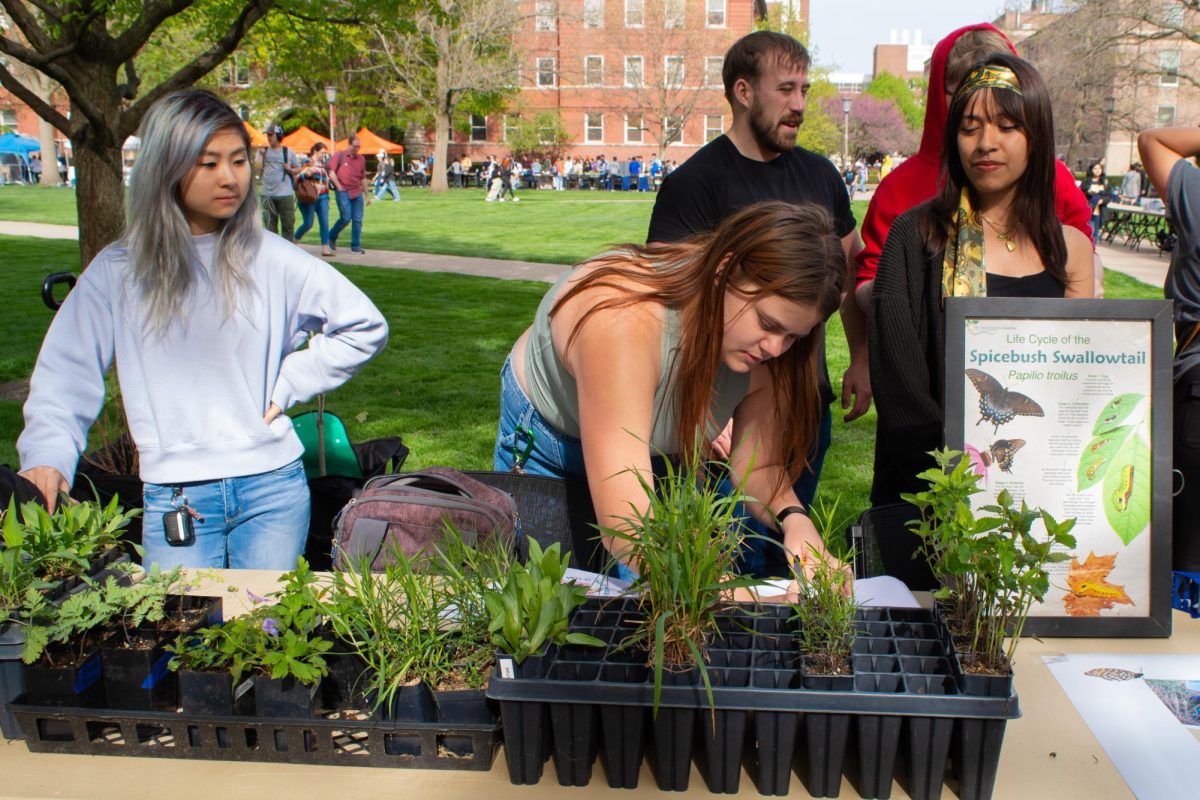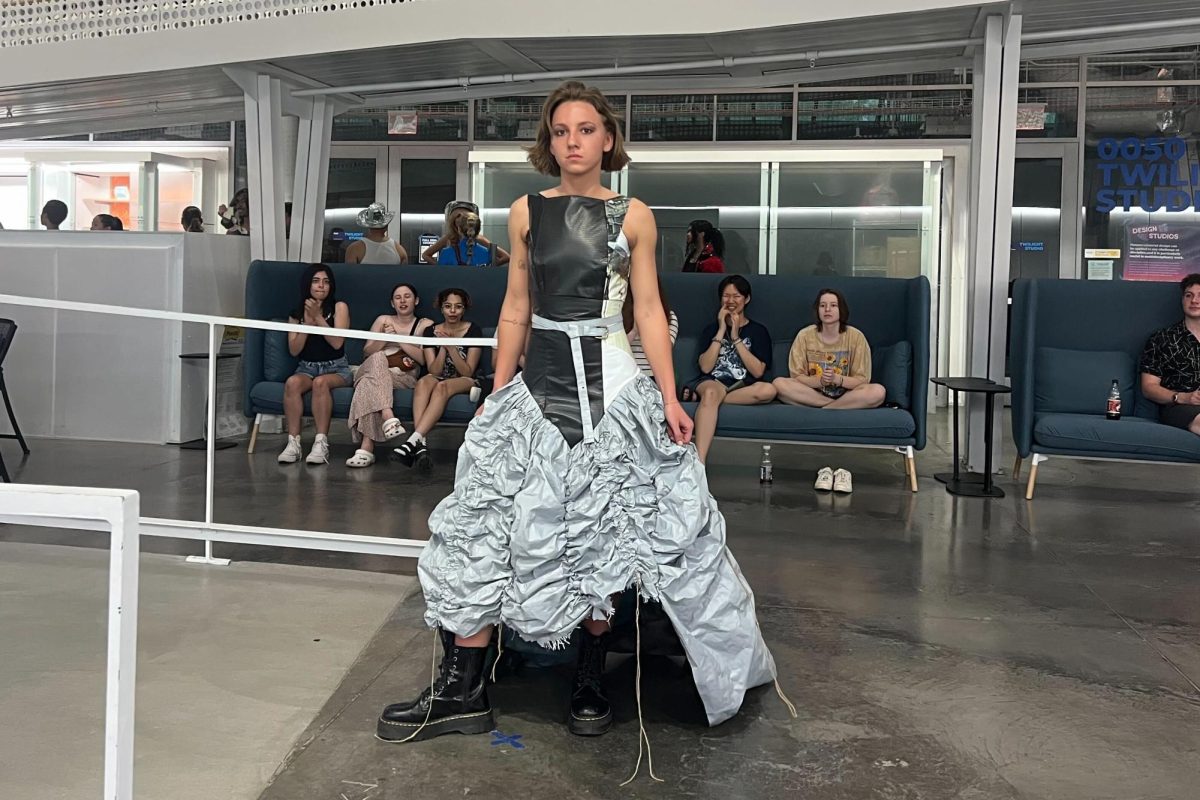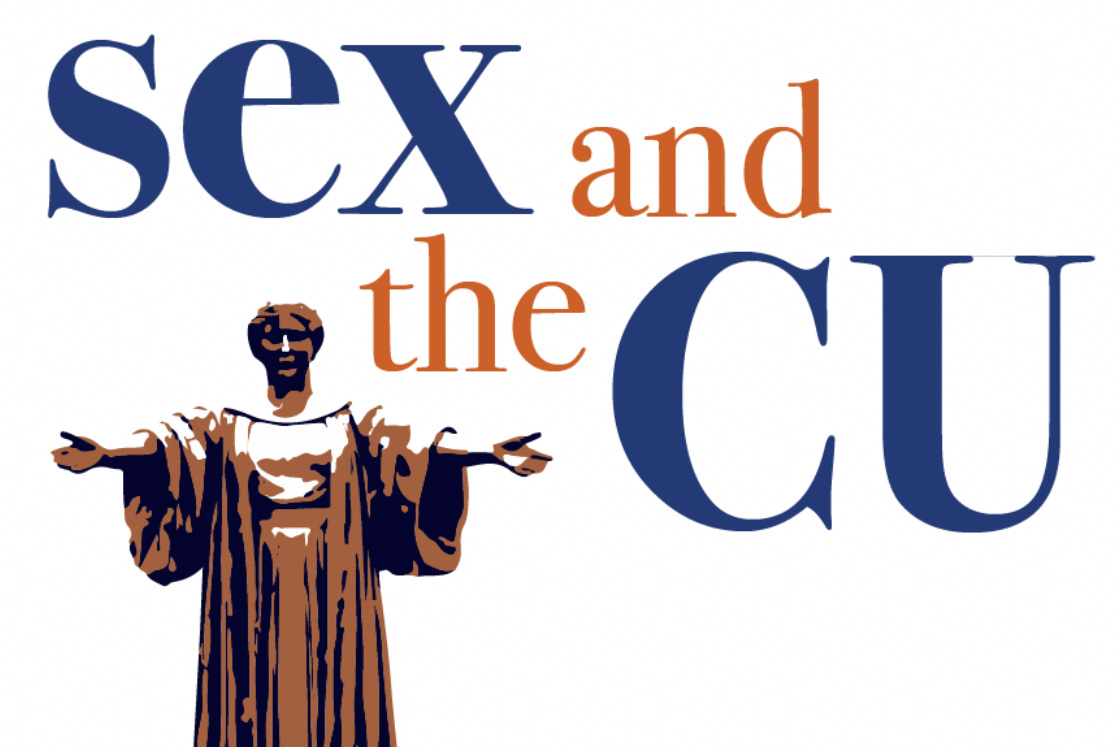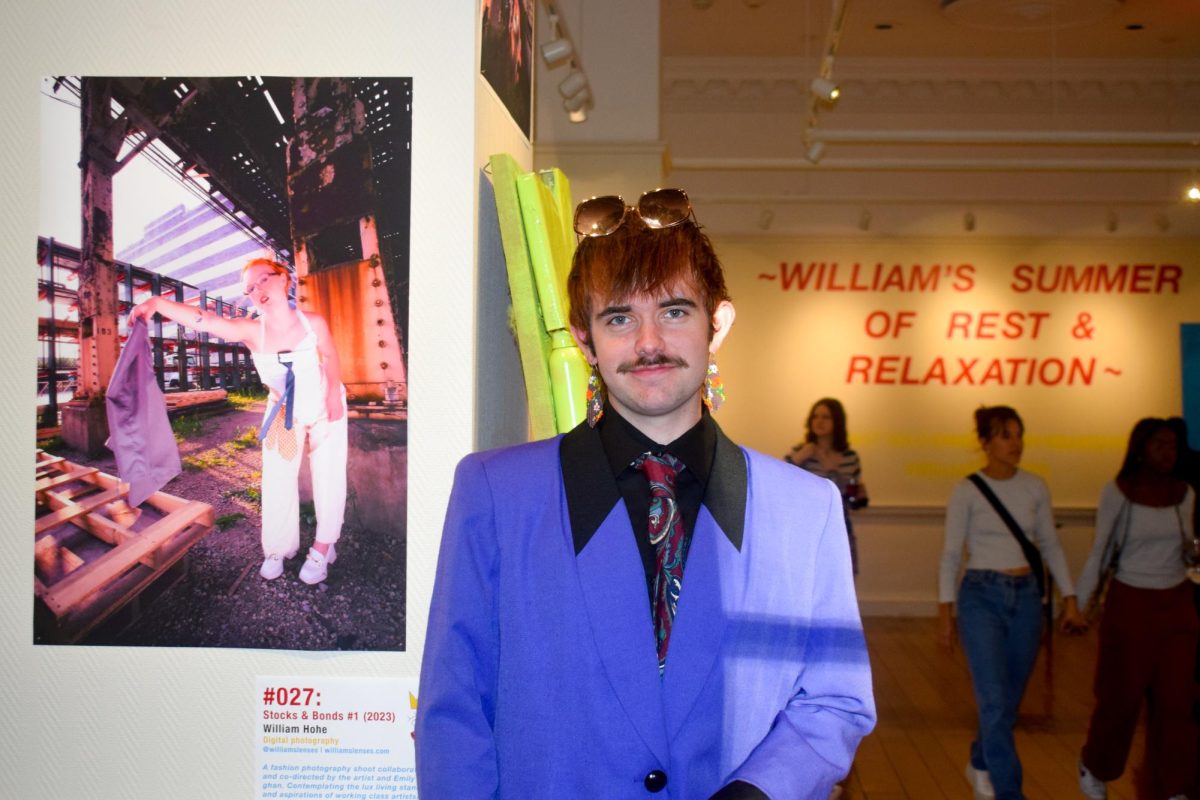While standing in the middle of the State Farm Center for the 2013 graduation rehearsal, Sarah Adams, current clerkship coordinator of the Carle Illinois College of Medicine and former faculty in ACES, received a dreaded phone call.
“My boss was like, ‘No, no, take it, take it,’” Adams said. “It was my primary physician who was calling with the results of my biopsy, and I just remember him saying, ‘Hi, this is the doctor, and I got your biopsy results. Kid, it’s ugly, and we need to get you into the Mills right away, and it is breast cancer.’”
Adams recalled crying for a minute, but she tried to hurry and get off the phone because she knew she still had a job to do.
“I just somehow suppressed everything and was like, ‘I just gotta get through this, and then I can kind of have my meltdown,’” Adams said.
Each year, October is recognized as Breast Cancer Awareness Month. According to the American Cancer Society, the average risk of a woman in the United States to develop breast cancer in her lifetime is 13%.
Get The Daily Illini in your inbox!
Adams was diagnosed with stage II breast cancer on May 10, 2013, at 38 years old. She elected to do a mastectomy surgery, without reconstruction, on May 24. According to Mayo Clinic, a mastectomy is a surgery that removes all breast tissue to prevent or treat breast cancer.
After a 6-week recovery, she had 14 chemotherapy treatments from July through mid-November, and for Adams, one of the hardest parts about chemotherapy was the hair loss.
“When I had surgery, nobody really knew that I was sick,” Adams said. “I mean, I still had my hair; I still looked good. I could camouflage the fact that I didn’t have a breast on one side of my chest with either a scarf or my clothing, but when you lose your hair, it’s really difficult. I mean, then immediately people know something’s up.”
Adams had 33 radiation treatments from December until February 2014, where her skin would continually get burned. She started hormone therapy in February 2014 and continued the treatment for five years.
According to the American Cancer Society, breast cancer death rates have been steadily decreasing since 1989, with an overall decline of 43% through 2020. Finding breast cancer earlier through increased awareness, screenings and quality treatments is believed to be the cause of lower death rates.
Mabruka Yazidi, breast imaging nurse navigator at Mills Breast imaging in Carle Cancer Institute, said the best thing to do is to catch breast cancer prematurely.
“The name of the game is catching it early,” Yazidi said. “And that is doing your screening when you’re 40. And then if you are feeling anything in your breasts that is not normal, then getting checked out right away.”
Yazidi described that early breast cancer symptoms may include a lump in the breasts or armpits, nipple drainage, nipple retraction, dimpling in the breasts or changes in breast size.
The recommended age to start getting yearly mammogram screening by the American Cancer Society is 40 and possibly earlier if someone has a family history of breast cancer.
Yazidi recommended everybody, not just women, have an annual breast and chest exam, starting at 25, with their provider and also familiarize themselves with what their breast or chest area feels like as a baseline.
Even if people do not have a family history of breast cancer, they should still schedule their screening mammograms, according to Yazidi. The National Library of Medicine reported that 80-85% of women diagnosed with breast cancer do not have a family history.
“There are programs that will cover any sort of breast issue in Illinois, but you have to, of course, reach out and apply,” Yazidi said. “If you are having a hard time, just in between insurance, or, you know, really need to get screened or if you’re feeling something, reach out to the Illinois Breast and Cervical Cancer Program, and you can just call their phone number.”
Yazidi also said people can research low-cost clinics in their communities. Within the Champaign-Urbana community, the Carle Cancer Institute can help visitors discuss options for payments and imaging. Planned Parenthood in Champaign also offers various services, including breast exams, mammogram referrals and other cancer screenings.
As a survivor and advocate, Adams is an inaugural member of the Cancer Research Advocacy Group, also known as CRAG, which was formed in 2015 and focuses on the importance of cancer research.
“We really want to get the cancer researchers to start thinking outside of their labs at what patients need and helping really tailor the medicine and the treatment for a better quality of life, and then take that back to their lab so they can work on those issues,” Adams said.
Spreading awareness is also important to Kelsey Rothas, a senior in AHS. Rothas, alongside other campus partners, planned and hosted a breast cancer awareness walk on the Main Quad on Oct. 10.
There were tables and booths with educational information about breast cancer awareness, interactive activities and giveaways. While checking in to the event, everybody received a bib in honor of a loved one, family member or friend, which was placed on a poster board at the end of the walk.
At the event, Rothas shared her personal connection to breast cancer.
“Breast cancer runs in my family,” Rothas said. “Both my grandma and my godmother passed away and fought the battle of cancer. And then my mom was recently diagnosed two years ago and is now a survivor. So breast cancer is a very important thing in my life, and it hits pretty close to home.”
Yazidi said anybody who has any sort of mammary tissue can get breast cancer, including men. The Centers for Disease Control and Prevention reports that one out of every 100 diagnoses of breast cancer in the United States can be found in a man.
Yazidi encouraged college students to spread awareness and take the initiative to educate themselves.
“I want you to advocate for yourself and make sure your providers are doing annual checks on you,” Yazidi said. “And I want you to know the importance of getting a screening mammogram when you’re 40. Be open about the dialogue. The more the dialogue is open, the less scary everything is, and the sooner people come in to get checked out and stuff.”



